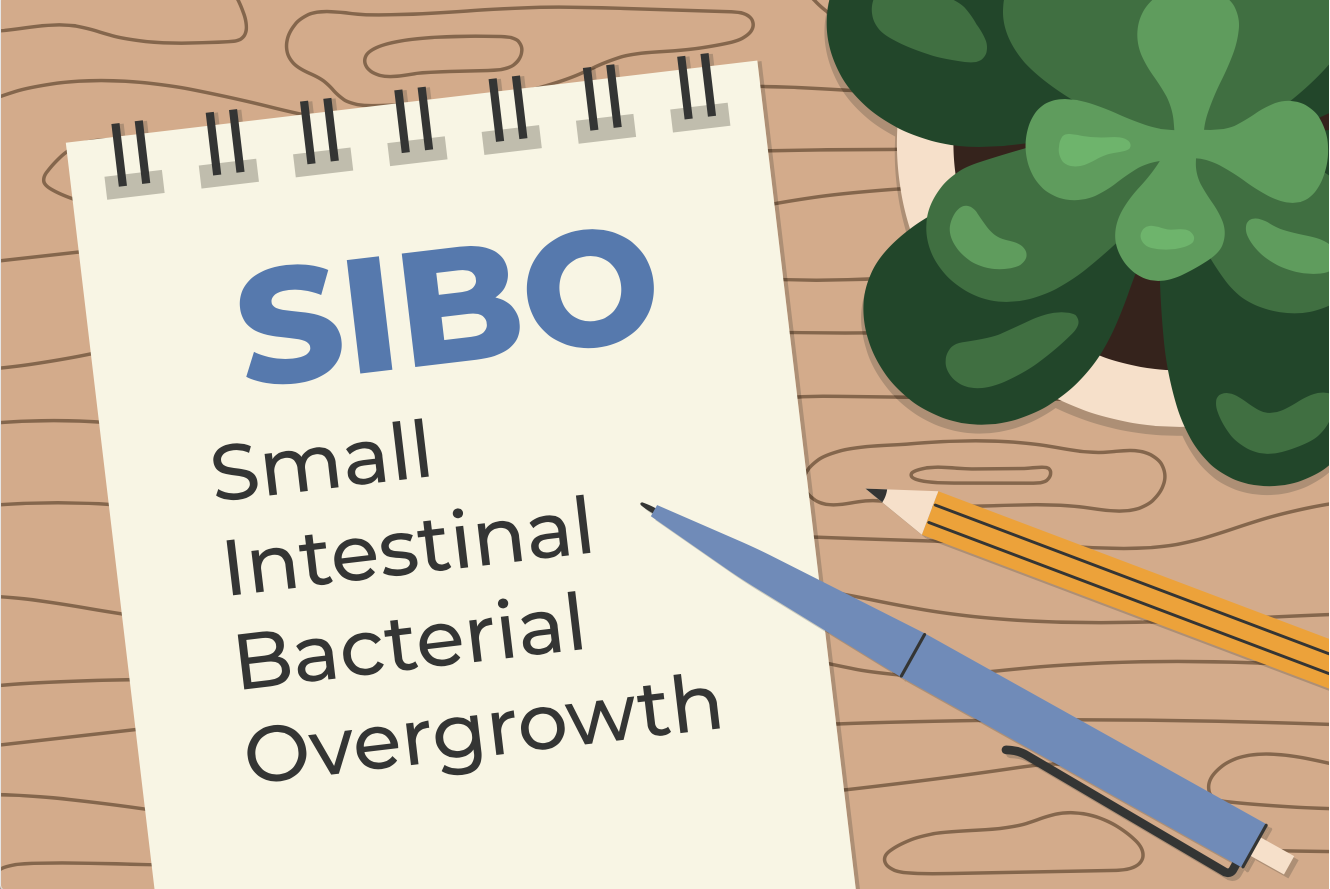Small intestinal mal-colonization (SIBO): Causes, symptoms and treatment
Small intestinal bacterial overgrowth (SIBO) is an often overlooked digestive disorder that can cause a variety of symptoms. It occurs when bacteria that normally live in the large intestine colonize excessively in the small intestine. This incorrect colonization leads to digestive disorders, impairs the absorption of nutrients and can significantly reduce quality of life. In this article, we look at the causes, symptoms, diagnosis and treatment options for small intestinal bacterial overgrowth (SIBO).
What is small intestinal bowel overgrowth (SIBO)?
The small intestine plays a central role in digestion and nutrient absorption. Under normal circumstances, it contains only a few bacteria. However, in the case of small intestinal bacterial overgrowth (SIBO), there is an excessive proliferation of microorganisms in the small intestine, especially those normally found in the large intestine.
These bacteria ferment carbohydrates and produce gases such as hydrogen, methane or hydrogen sulphide in the process. This can lead to symptoms such as flatulence, abdominal cramps, diarrhea or constipation – depending on which type of gas dominates.
Causes
Small intestinal mal-colonization (SIBO) can be triggered or promoted by various factors:
1. disturbed bowel movement (motility disorder)
Restricted intestinal peristalsis prevents the natural “cleansing” of the small intestine, allowing bacteria to linger and multiply for longer. Causes include
- Irritable bowel syndrome
- Neurological diseases
- Diabetes
- Bowel operations
2. anatomical changes
Constrictions (strictures), adhesions or blind loops in the intestine (e.g. after operations) can slow down the passage of food and promote incorrect colonization.
3. lack of stomach acid
Stomach acid serves as a natural barrier against bacteria. A lack of stomach acid – for example due to the long-term use of proton pump inhibitors – makes it easier for bacteria to enter the small intestine.
4. disturbance of the intestinal flora
Antibiotics, poor nutrition, chronic stress or illnesses such as Crohn’s disease can disrupt the balance of the intestinal flora and thus promote small intestine overgrowth (SIBO).
Typical symptoms
The symptoms of small bowel overgrowth (SIBO) are varied and often unspecific, which is why it is often confused with irritable bowel syndrome. The most common symptoms include
- Flatulence, often immediately after eating
- Abdominal pain and bloating
- Diarrhea or constipation
- Nausea
- Greasy, foul-smelling stools
- Intolerance to certain foods
- Tiredness, concentration problems
- Vitamin and mineral deficiencies, especially vitamin B12
Diagnostic options
The diagnosis of small bowel overgrowth (SIBO) is usually made using a non-invasive breath test. The patient drinks a sugar solution (usually glucose or lactulose) and the concentration of hydrogen and methane in the exhaled air is then measured at regular intervals. A rapid increase in these gases indicates an incorrect colonization.
Further supporting examinations are:
- Blood tests to detect deficiencies
- Stool tests to rule out other causes
- Ultrasound or endoscopy for suspected anatomical changes
Therapeutic approaches
The treatment of small intestinal bacterial overgrowth (SIBO) is usually carried out in several steps and aims to reduce the excessive number of bacteria, alleviate symptoms and prevent relapses.
1. antibiotic therapy
The non-absorbable antibiotic rifaximin is often used. It acts locally in the intestine and specifically kills bacteria. In the case of methane-producing bacteria, a combination with neomycin may be necessary. Herbal alternatives such as oregano oil, berberine or garlic extracts have also shown good efficacy in studies.
2. nutritional therapy
Diet plays a crucial role during treatment and in relapse prevention. The following approaches have proven effective:
- Low FODMAP diet: avoidance of fermentable sugars and fiber
- Specific carbohydrate diet (SCD): Avoidance of complex carbohydrates
- Elemental diet: Nutrient-rich drinking food that does not provide food for bacteria
3. promotion of intestinal motility
Prokinetics (e.g. erythromycin in low doses) support the natural cleansing movement of the small intestine. Intermittent fasting can also help to activate the so-called “migrating motor complex” (MMC).
4. intestinal flora build-up
After reducing the incorrect colonization, it is important to restore the healthy intestinal flora. High-quality probiotics with Lactobacillus and Bifidobacterium strains can be helpful here.
Long-term strategies and relapse prevention
Small bowel overgrowth (SIBO ) tends to relapse, especially if the underlying cause (e.g. motility disorder) is not treated. A holistic approach is therefore crucial:
- Long-term change in diet
- Stress management
- Regular exercise
- Support through naturopathic procedures such as acupuncture, microbiome build-up or intestinal cleansing
Conclusion
Small intestinal malabsorption (SIBO) is a serious but easily treatable disease of the digestive system. As its symptoms are non-specific, it is often only recognized at a late stage. However, a targeted diagnosis using a breath test, combined with a holistic therapy of antibiotics, nutrition and bowel care, offers a good chance of improvement. Anyone suffering from chronic flatulence, abdominal discomfort or unexplained nutrient deficiencies should consider small intestine overgrowth (SIBO) and have it checked out by a doctor.


Leave A Comment